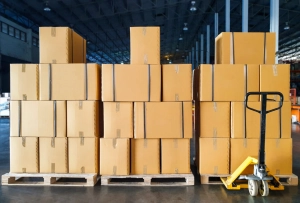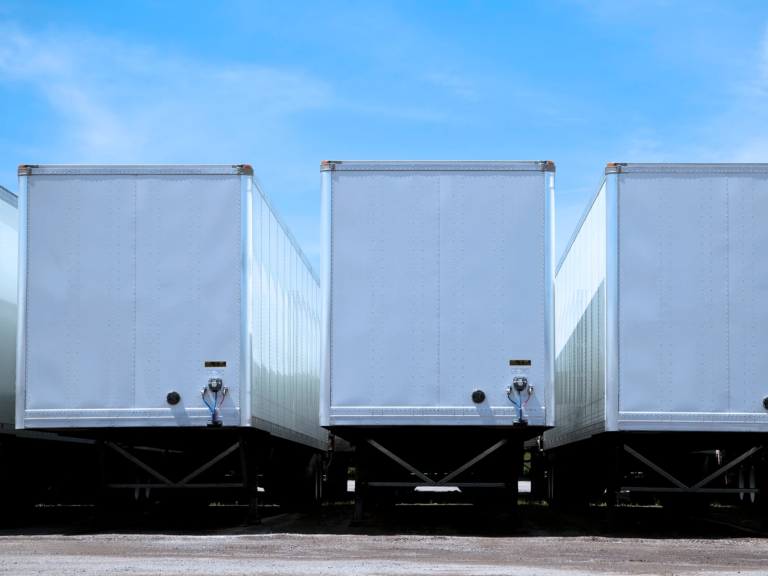Key Takeaways
- LTL freight (Less Than Truckload) is a cost-saving option for freight brokers as it allows them to ship smaller loads without booking a full truckload, resulting in favorable rates and quotes.
- LTL shipments are influenced by factors such as weight, volume, density, fuel costs, route distance, and irregular packages, which impact pricing and overall profitability for brokers.
- Descartes Aljex offers LTL software solutions that streamline the LTL shipping process, provide access to an extended network of carriers, offer advanced visibility and data analytics, and cater to specialized freight services, improving productivity and performance for brokers of all sizes.
What Is LTL Freight?
LTL freight is a gamechanger…
LTL stands for Less Than Truckload. For freight brokers, LTL shipments are those that don’t require the space and volume of a full trailer.

For example, Broker XYZ needs to ship two pallets weighing 200lbs each. The broker only needs to reserve a portion of the freight trailer allowing them to save on the costs that come with booking a full truckload. Broker XYZ can now save on costs while still fulfilling their shipment.
Favorable LTL rates and quotes are essential for brokers to maintain business operations and solidify ROI.
In a global supply chain with constant disruption and setbacks since the start of the pandemic, securing capacity and adequate margins has never been more important for 3PLs.
LTL vs PTL vs FTL
LTL freight differs from PTL (Partial Truckload) and FTL (Full Truckload).
PTL (also known as volume LTL) is simply a hybrid version of LTL. Depending on the carrier, PTL is characterized as a shipment with 4 or more pallets, and is sold as a portion of the transportation means, up to ¾ quarters of a trailer. Selecting PTL over LTL means brokers have more trailer space at a more cost-effective price.
FTL (Full Truckload) references a shipment which requires an entire trailer or truckload. Both brokers and shippers choose FTL as the most used means for fulfillment, making it the most common version of shipment in the transportation management industry.
How Much Does LTL Freight Cost?
Starting rates of LTL shipments are measured by ‘the rate per hundred pounds.’

Generally, the rate of an LTL shipment starts between 0 – 499 pounds at around $50/hundred pounds, while the rate per hundred for shipments between 500 – 999 pounds drops to $40/hundred, with larger discounts for even heavier loads. Similar to a bulk discount… the more you purchase, the more you save (per hundred pounds).
However, weight is not the only deciding influencer for LTL carriers. Prices will also vary based on a variety of determining factors…
What Influences LTL Pricing?
Understanding LTL rating and how rates are specifically calculated is essential for brokers to maintain profitable returns and improve ROI.
Here are the top determining factors that influence LTL carriers and their current rates:
- Lanes – Certain lanes will carry higher costs based on demand, route complexity, geography, terrain, and other different challenges. A 500-mile lane on the East Coast is not the same as a 500 mile lane through the Midwest.
- Route distance – LTL carriers have costs too. Fuel, maintenance, and driver pay all come into the equation. Longer routes generally means carriers inherit a longer transit time.
- Weight – Like most carrier systems, weight of packaging largely will influence price. When it comes to LTL, shipments are priced via every hundred pounds
- Volume – Truckload space isn’t just determined by the square feet taken up by a pallet. Typical trailers will have roughly 9 feet of space from top to bottom, meaning carriers will charge for the volume of a shipment along with the net weight.
- Density – The equation for density is mass/volume. To calculate the density of an LTL shipment, carriers take the weight of the LTL shipment per hundred pounds and divide it by the total volume of the shipment. The denser the shipment, the higher the cost. This is also often referred to as “Freight Class” (e.g. Class 55 = 50lb/cubic foot, Class 60 = 30-35lb/cubic foot, etc…)
- Fuel Costs – The recent rise in fuel prices can also attribute to increases in LTL freight pricing. Fuel is one of the major variable costs that will change based on economic inflation and distance traveled for shipments. If fuel costs go up, expect LTL rates to increase as well.
- Irregular Packages/Handling – Not all shipments are the same. Shipments come in all shapes and sizes. For those that take on irregular shapes, carriers may place a higher fee due to handling and lost trailer volume.
- Shipment Items – Shipping something worth a hefty price or something of hazardous material? Expect to pay more. Consider it insurance for the added value of handling and safety of the shipment.
- Expedited Shipping – In cases where brokers need quicker delivery services, certain LTL carriers will offer expedited services. For brokers, plan on spending more for the rushed shipment.
- Minimum Charges – LTL carriers have a minimum charge to ensure they aren’t losing out due to costs. Even smaller and lighter shipments may have abnormally higher pricing to meet the minimum costs acquired by carriers.
Descartes Aljex LTL Software & Solutions
To better source LTL carriers, quotes, and rates; brokers are investing in highly capable LTL software solutions. Descartes Aljex considers all aspects of LTL shipping in our software allowing for a more refined and improved LTL shipment processes.
- Fewer Shipment Steps – Eliminate pesky manual processes
- Extended LTL Network – Gain access to LTL carriers
- Advanced LTL Tracking & Visibility – Through our integration with Descartes MacroPoint
- Increased Level of Data – Performance reporting (dashboards & analytics)
Is My Brokerage Compatible With Descartes Aljex LTL Software?
Descartes Aljex serves all sizes and ranges of freight brokers. From billion-dollar brokerages with hundreds of employees to local mom and pop brokers with 5 employees.
Descartes Aljex also serves brokers who require specialized freight services
- Refrigerated – Certain industries (food, beverage, pharmaceuticals) require shipments to be held at a certain temperature to avoid product spoilage
- Flatbed – Many freight types (steel, construction materials, etc…) require a flat-bed trailer vs. dry-van, often with greater than 2 axle configurations (due to weight requirements).
- Bulk – Shipment of goods in large quantities requiring extra cargo space
By choosing Descartes Aljex LTL software, brokers are greeted with powerful data, actionable analytics, and built-in custom reports to continue planning and performance evaluation. Our LTL solutions along with the data has been shown to increase LTL shipment productivity by 20-40%.
Schedule a Discovery Meeting to learn more about Descartes Aljex LTL Software.


